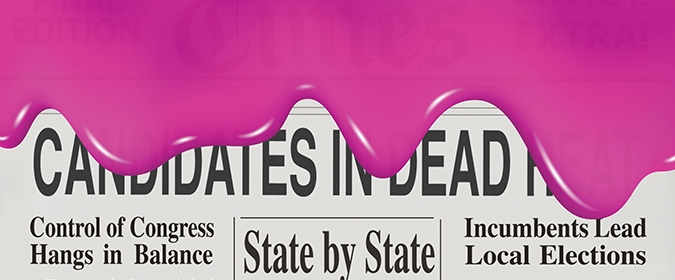Know The Source Of Your “Local News”
By NATALIE SEALES
News Media Alliance
Despite the current political polarization in the U.S., many readers still trust their local news outlets for reliable information.
But these trusted local news sources are now being exploited – to the detriment of readers and trusted journalism – by partisan organizations seeking to further their political agendas.
As the election approaches, these political groups are taking advantage of local news publishers’ hard-earned reputations by taking on the look and feel of local news sites, with many readers unaware that they’re not real news sites.
According to Columbia Journalism Review, over the last year, there has been a sharp increase in the number of non-news websites that, by design, bear striking similarities to local newspapers’ digital content. However, these websites are actually funded by political action committees (PACs) and lobbyists to further specific political viewpoints.
Dubbed “pink slime” websites, these sites claim to be local or business-related sources and seem designed to hide their true ownership. But deeper research revealed that most of these sites can be traced back to a few politically motivated sources. More than 700 faux local news sites have been activated in 2020 alone.
These PAC-funded websites look the same, sound the same, and even use some of the same content as genuine local news outlets. Yet, they are not objective news publishers.
Be Aware of Pink Slime Websites
To make matters worse, these pink slime websites receive the same classification from Facebook as legitimate news sources, and their articles often appear on Google News, adding to consumers’ confusion.
Partisan sources are plentiful and should be allowed to thrive, but hiding their agendas by masquerading as local news sources is deceptive and dangerously confusing to readers in search of the unbiased truth.
The free press is about bringing truth into the light, but the free flow of ideas is eroding because of injurious political operatives. Agendas, funding and biases shouldn’t be hidden behind the façades of objective news sources. It is more important than ever that local news publishers be able to defend their legitimacy and reputation as providers of high-quality news.
To protect the free press and the free marketplace of ideas, local news must be protected, not exploited.












